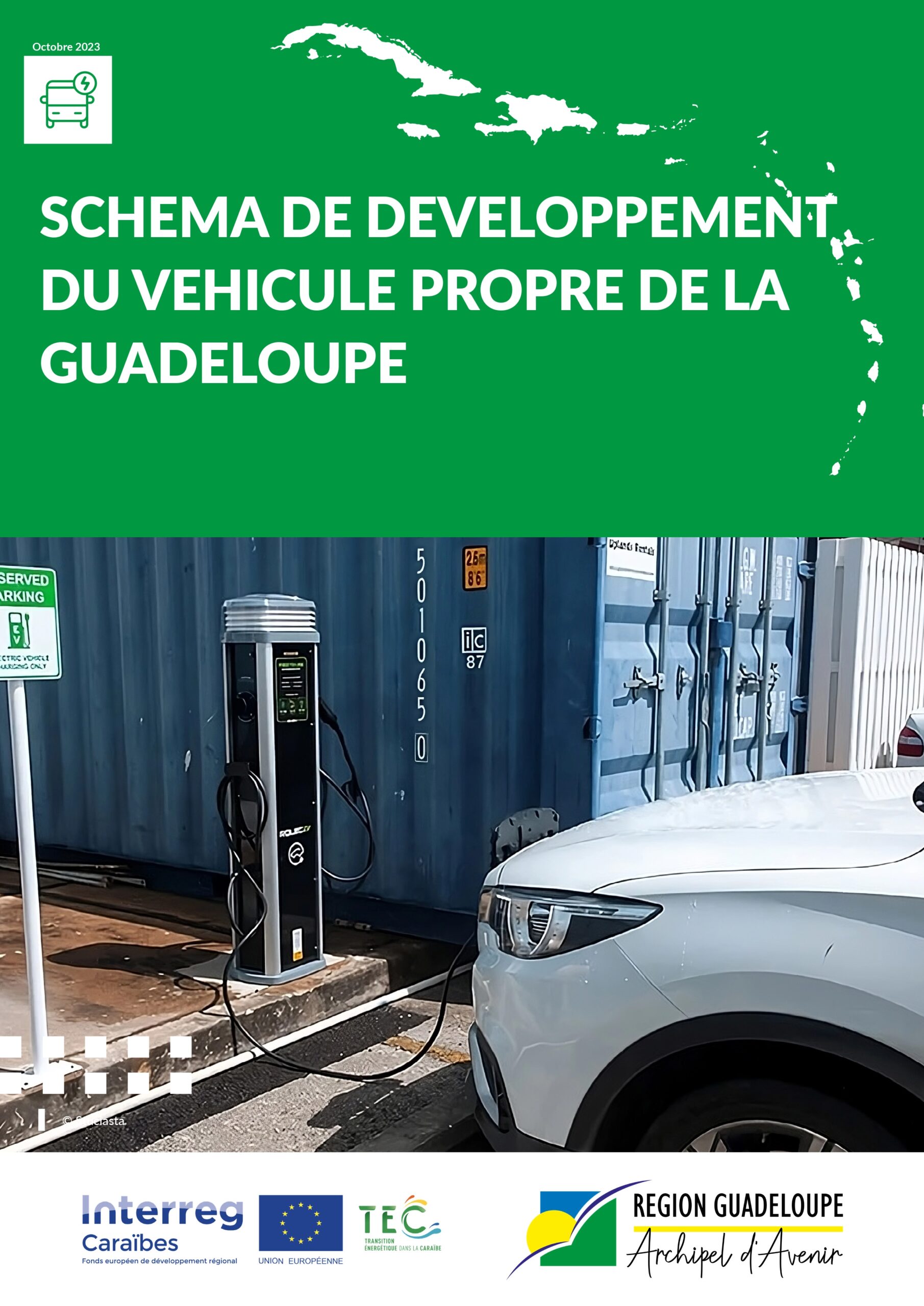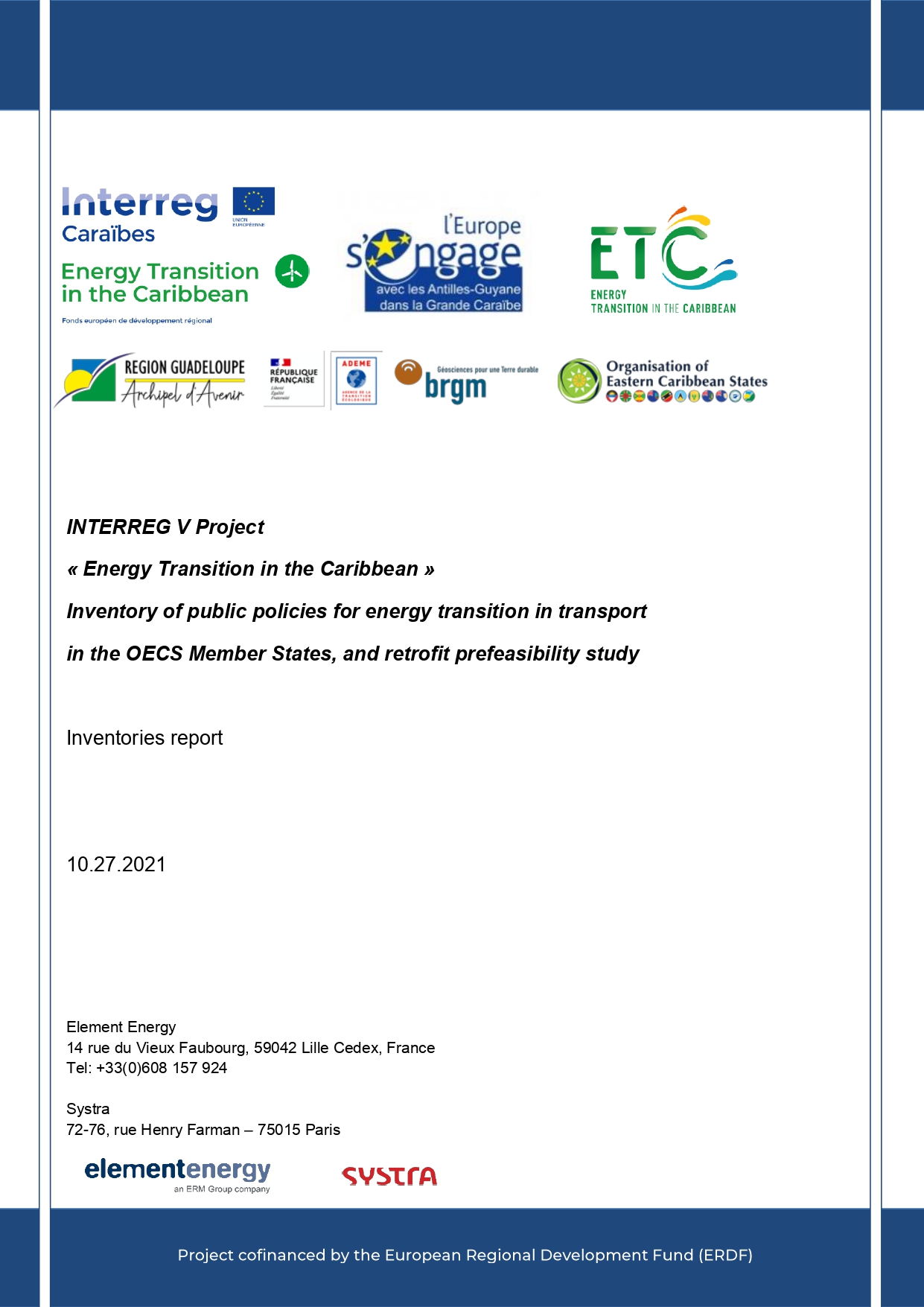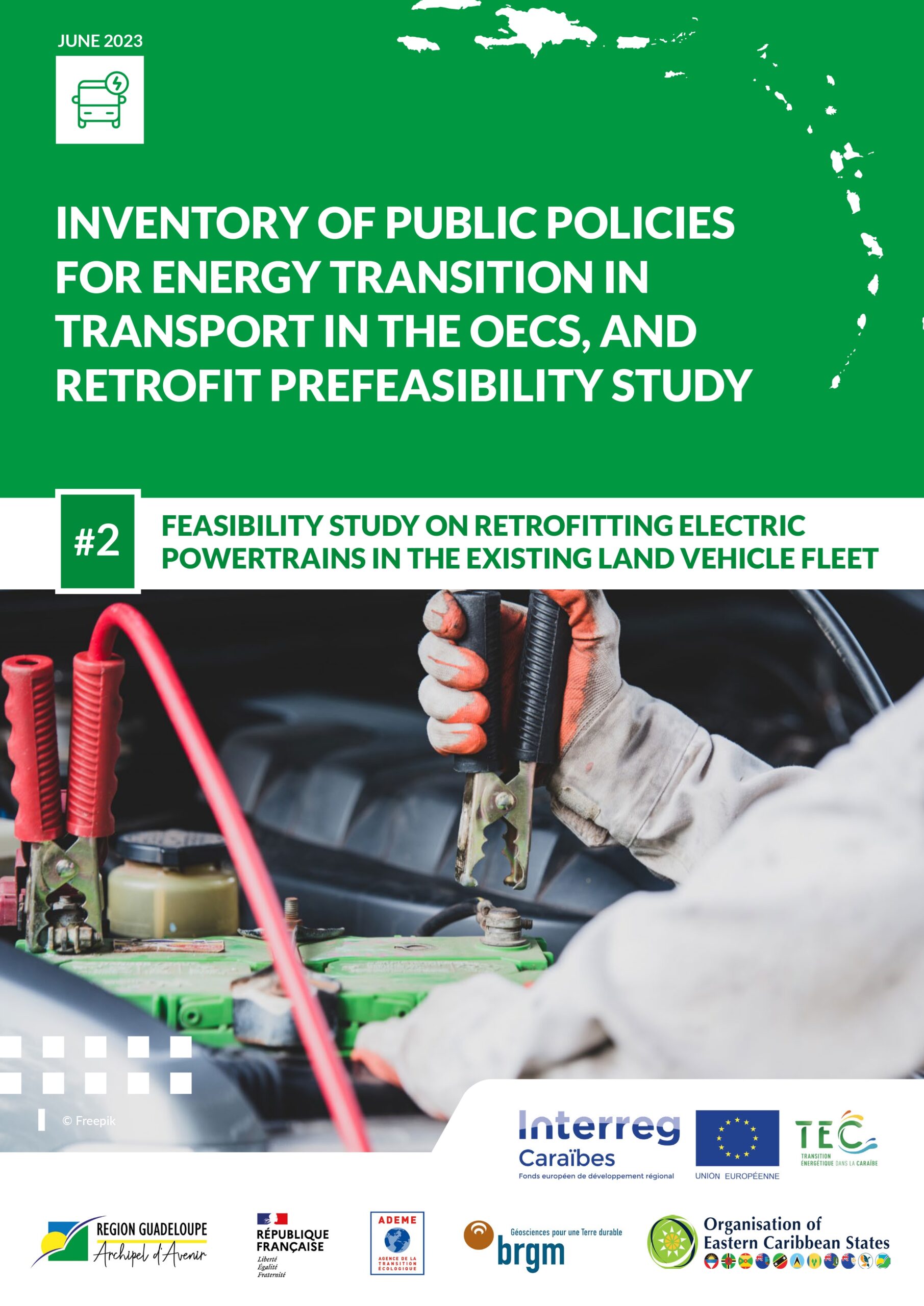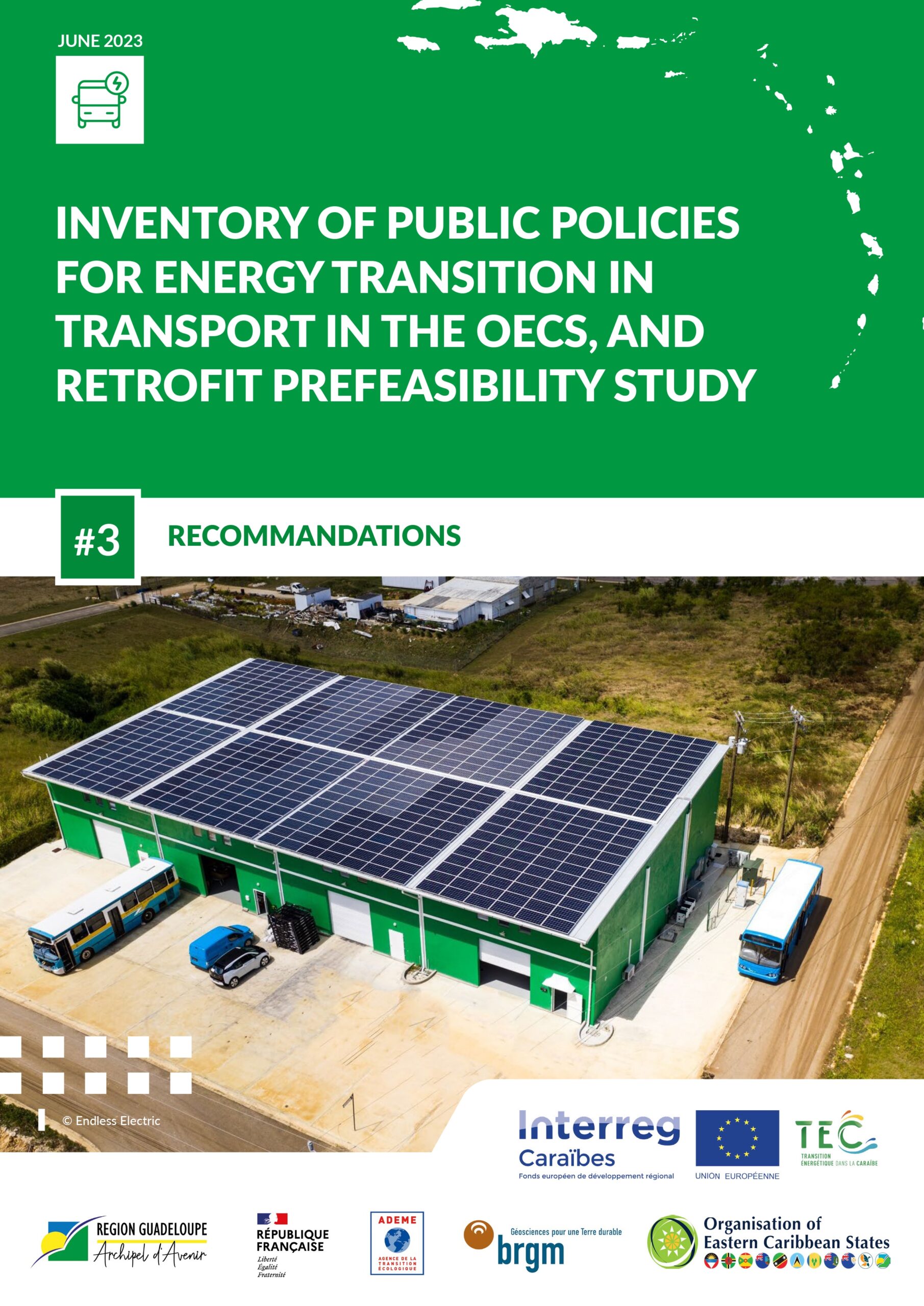Sustainable Energy in the transport sector
In the Caribbean, transportation comprises more than one-third of energy consumption, undergoing a transition toward renewable energy sources. Despite endorsing electromobility, challenges persist, including professional retraining and environmental management. Sharing best practices in sustainable mobility can be challenging, and studies on converting thermal vehicles to electric ones are scarce.

Guadeloupe Electric Vehicle Roadmap
In Guadeloupe, transportation plays a central role in the island’s energy usage, constituting almost two-thirds of its total consumption. Particularly, road transport heavily relies on petroleum products, contributing significantly to this energy usage. Given the urgent need for energy transition, implementing tangible actions to decrease the transportation sector’s carbon footprint and encourage sustainable alternatives is imperative.

Inventory of public policies for energy transition in transport in the OECS Member States
Embedded within the INTERREG project, this study evaluates the electricity compositions and sustainable transportation regulations within OECS member states, including a preliminary assessment on transitioning internal combustion engine vehicles to electric vehicles in three chosen states. Its objective is to address data deficiencies and shape forthcoming policies by involving pivotal transportation stakeholders.

Feasibility study on retrofitting electric powertrains in the existing land vehicle fleet
Three OECS member states were chosen for further examination due to their potential for implementing retrofits in the current vehicle fleet. Factors considered included the country’s topography, size, fleet homogeneity, and data accessibility. The selected states for the second phase are St. Kitts & Nevis, St. Lucia, and St. Vincent and the Grenadines.

Inventory of public policies for energy transition in transport in the OECS Member States, and retrofit prefeasibility study : Recommandations
This document presents effective approaches for implementing vehicle retrofitting in the Caribbean, emphasizing the specific considerations governments need to address. Rather than a detailed guide, it provides a framework for governments to tailor their own retrofitting strategy to their local economic and political contexts.